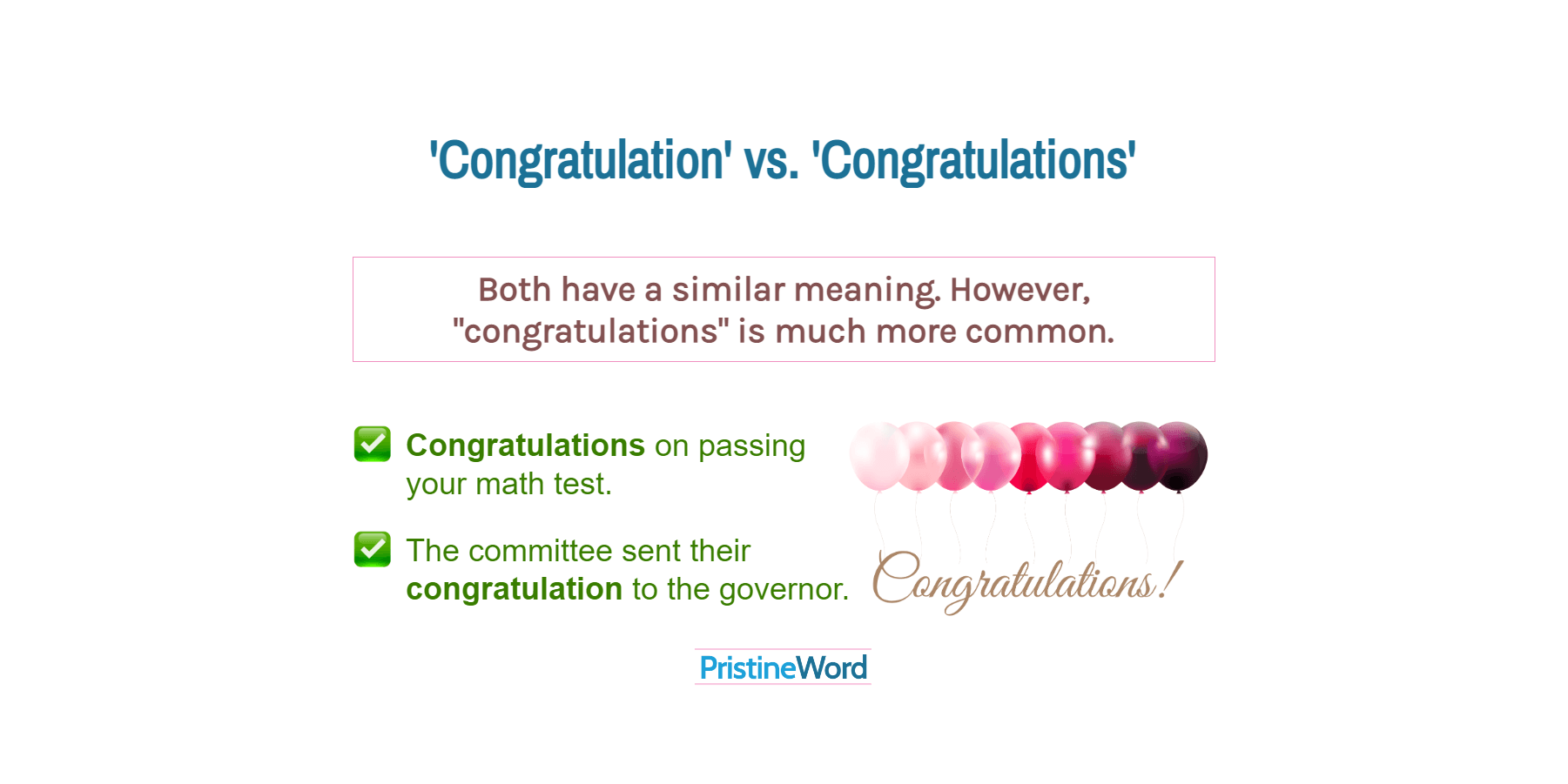Both have a similar meaning. However, "congratulations" is much more common.
Congratulation and congratulations have a similar meaning. Both are correct. Congratulation is simply the single form of congratulations. However:
- "Congratulations" is much more common (e.g., "Congratulations on your wedding.")
- To express an emotion or sound more natural, we always use "congratulations" (e.g., "Congratulations on your new baby!" or just "Congratulations!")
- The singular form, "congratulation", is used when you are referring to a particular act of congratulating someone (e.g., "It was a note of congratulation to my business partners.")
- When it comes from a group of people, "congratulation" is also used (e.g., "We offered our congratulation to Susan Johnson.")
As an exclamation, "congratulations" is almost always used alone.
That's great news. Congratulations!
In most situations, particularly in everyday English, we use this term in the plural.
Congratulations on passing your math test.
As mentioned above, when it comes from a group of people rather than a single person, "congratulation" can also be used.
The committee sent their congratulation to the governor.
Note that we usually say "congratulations on" rather than "congratulations for".
Congratulations on this great achievement.
Instead of using the expression "offering congratulations to someone", you can simply "congratulate someone".
The boss of the company offered congratulations to her employees.
The teacher congratulated me on my test results.
Finally, keep also in mind that we congratulate someone on something or for doing something.
Yesterday, I congratulated Olivia on her new baby.
We congratulated David for getting a new job.

